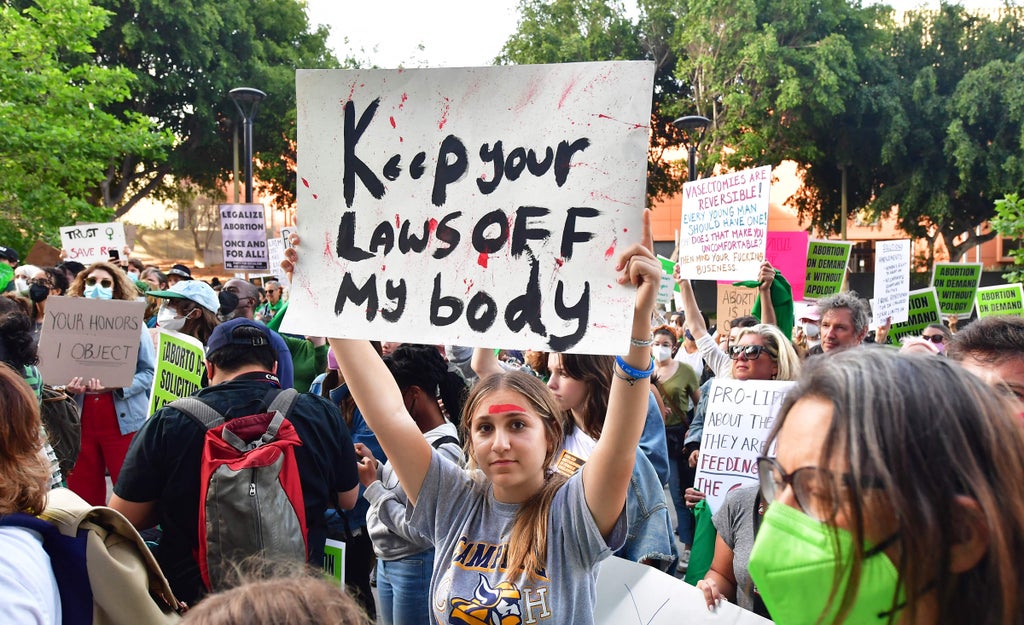
A leaked Supreme Court draft opinion has suggested that there likely is a majority on the court in favour of overturning Roe v Wade, the landmark 1973 case that made abortion legal federally across the US.
But according to experts, the possible overturning of the law could also affect access to birth control.
The final decision on Roe v Wade is yet to be made, but it could limit access to reproductive healthcare beyond abortion.
Questions right to privacy
Visiting associate professor of public health policy and management at the NYU School of Global Public Health, Jean Bae, told Today that the draft opinion written by Justice Samuel Alito questions the implied right to privacy that many decisions previously made by the court, such as Roe v Wade, have been based on.
While the right to privacy isn’t mentioned in the Constitution, it has been codified in previous decisions on repeated occasions.
Professor Bae said that the legal framework for these cases has been “based on the idea of a zone of privacy that exists for people to essentially be free from government intervention and control in making these kinds of very personal decisions”.
But overturning Roe v Wade suggests that removing other rights, which have been protected under that implied right to privacy, could be possible. That can also include same-sex and interracial marriage, and the right to partially have a say in your children’s education, the professor added.
Draft opinion ‘can’t be limited to abortion’
While the draft opinion states that the consequences won’t be felt beyond the area of abortion, Wendy Mariner, a professor of health law, bioethics, and human rights at the Boston University School of Public Health, told Today that the opinion “can’t be limited to abortion”.
The right to contraception came before Roe v Wade – in the 1965 case of Griswold v Connecticut, the Supreme Court affirmed the right for married couples to use contraception, Professor Mariner noted.
Following the 1972 case Eisenstadt v Baird, that right was also afforded to unmarried people.
“If this opinion becomes the opinion of the court, Griswold is imperilled, no question,” Wendy Parmet, the faculty co-director for the Center for Health Policy and Law at Northeastern University, told The Guardian.
“There are a lot of decisions that follow from the idea of a constitutional right to privacy,” she added. “Once you throw down the best-known decision in that category of cases, every single other case is now up for grabs.”
Priscilla Smith, a lecturer on law and reproductive justice at Yale Law School, told the paper that “if the draft becomes the real opinion, all of those issues – contraception, consensual sex and marriage rights, certainly are all at risk”.
“They have definitely left the door wide open,” she added.
Some states want to ‘ban abortion from the moment of conception’
Ms Smith said that “there are definitely states that would like to ban abortion from the moment of conception, which means before fertilization, before pregnancy”.
“There’s definitely going to be a huge push by the anti-abortion world to take this as far as they can,” she added. “There is a whole wing of this group that is opposed to abortion who only support sexual intercourse when it is within the context of marriage and when it is designed to procreate. The use of contraception gets in the way of that.”
Anti-abortion activists are “setting the stage not just for a reversal of protections for abortion, but also for protection for the right to fetal life, the fetus being a person with a right to life guaranteed under the constitution,” Ms Smith told The Guardian. “That’s where we’re going if things don’t change.”
“If you get rid of those two cases, there’s no Roe v Wade,” Professor Mariner told Today. “And if there is no basis in the constitution for the right to abortion, then there’s no basis for the right to use contraception.”
The executive director of the American Public Health Association, Dr Georges Benjamin, told Today that “the potential creep to limiting access to birth control and a range of other reproductive services creates a real problem”.
“It really undermines the harmony and ecosystem where women have the power to choose their reproductive options”, he added.
Dr Benjamin noted that birth control is also used to treat other health conditions, such as polycystic ovary syndrome, acne, and migraines.
‘Your rights depend on where you live’
Professor Mariner added that “states could be free to say a fetus has the same rights as a person” regardless of the science.
They could impose “rigid and coercive regulation to make sure that a fetus is born, no matter the consequences to the woman”.
“This is going to have a dramatic impact on low-income individuals,” Dr Benjamin said.
A number of states already have severe restrictions on abortions, and some have trigger laws – abortion bans that will go into effect in the eventuality that Roe v Wade is overturned.
“It’s very clear that your rights depend on where you live, including your constitutional rights, which is an outrage,” Professor Mariner said. “And trust me, the states that disapprove of abortion are not going to stop there.”







